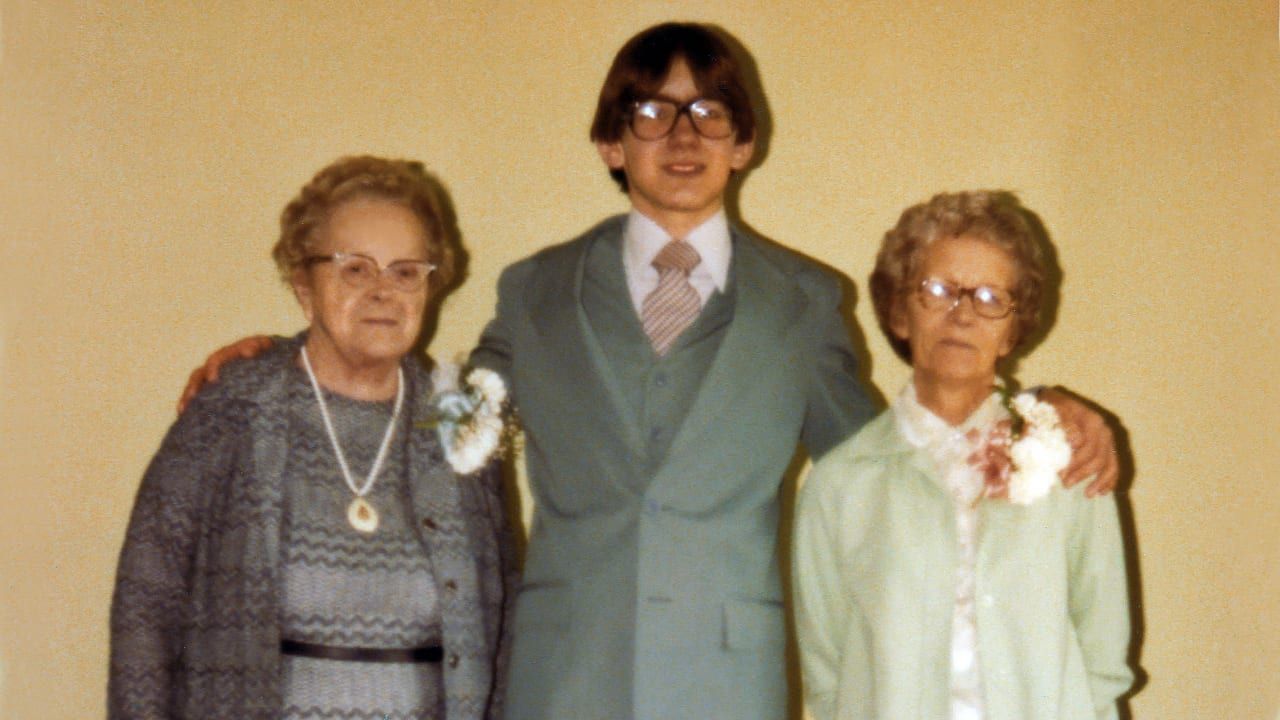The first time I tried talking with someone who had dementia, I had no idea what to say.
I was visiting my 92-year-old great-grandmother in Seward, Nebraska. She had been a sharp and witty storyteller for as long as I knew her. But on this visit she wasn’t the same strong woman I remembered.
Just a few years earlier, I had interviewed my great-grandmother for a high school writing assignment. (Thanks, Linda Sullivan, for asking your sophomore English students to write a biography.) I still have that project in its original binder. I titled the biography “Still Going Strong: The Story of Hulda Ahrens.”
On this visit, however, my great-grandma could no longer tell lengthy stories. She couldn’t answer all my questions, and some of her words made little sense to me.
I didn’t know what to say, so I didn’t stay long. When words fail, visits get cut short.
I really don’t remember what I said to my great-grandma that day. But more than 30 years have passed. I sang at my great-grandma’s funeral in 1989. Now, with the advantage of 30-plus years of hindsight, here’s what I would tell my younger self:
Say “I love you.”
You can’t say “I love you” too often. You can express love with a hug or a kiss or a smile. Sometimes we show love by spending time together, giving gifts, or by lending a hand with a project. But sometimes it’s best to say those three little words.
Of course, when you are talking with a loved one who has Alzheimer’s or another type of dementia, don’t expect to hear “I love you, too” in response. You might hear that. You might not. Either way, you know you love them. And you can cherish the love shared between the two of you in the past.
Tell her stories.
My great-grandma could no longer tell her own stories, at least not how she used to tell them. But I knew her stories. I had heard them my whole life. So, I would have told her stories.
I would have said, “I remember you telling me about the farm …” and “I remember you telling me about walking to the country school in Maryville …” and other stories she loved to tell.
Let her talk.
When words fail, listen. My great-grandma may or may not have enjoyed hearing me tell her stories. She may have listened, or she may have started talking herself. She may not have made complete sense. She may have even used some colorful words I had never heard her say before.
I know now that her words didn’t matter. My understanding of her words didn’t matter. So, if she wanted to talk, I would have listened.
Share a smile.
Even if I couldn’t understand what my great-grandma was saying, I would have tried my best to hear what she was feeling. I would have looked for verbal and nonverbal cues. As appropriate, I would have tried to nod or shake my head, look surprised, or look concerned. And when I didn’t know for sure how to react, I would have smiled.
One simple smile can express love, kindness, approval, and encouragement. Smiles connect when words fail.


0 Comments